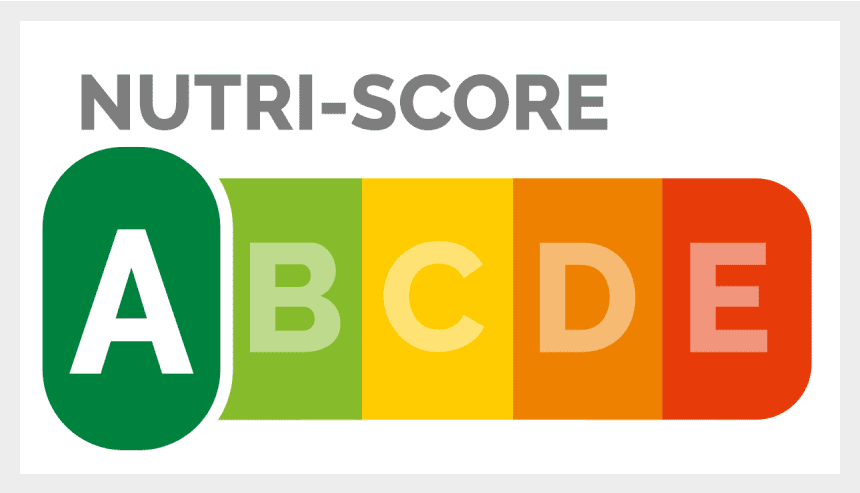The debate over the possible introduction of a pan-European food labeling system is igniting, with the Czech Republic, Sweden, Greece and the United Kingdom becoming the latest countries to come out and oppose the idea.
Whether or not Europe should adopt the French-born Nutri-Score FOPL (front-of-the-pack label), which was recently introduced in Germany and several other countries, sits at the heart of the debate.
We believe more in regional labels with a common ground.
“This labeling system might discriminate against quality food, food which is already labeled for its quality and food that has the properties and the composition specified by the law,” the Czech Ministry of Agriculture said in a statement. “And it does not take into account the daily consumption, which means that olive oil will not be classified by Nutri-Score as a truly healthy food.”
The ministry added that the Czech Republic would not adopt Nutri-Score on a nationwide basis.
See Also:Spanish Producers Join Chorus of Concerns Over Nutri-ScoreThe well-known healthy qualities of olive oil are often cited by critics of Nutri-Score as a reason not to adopt the FOPL system. Still, the International Olive Council (IOC) is working with French authorities to have olive oil marked as a high-quality and healthy food by the FOPL.
According to the Spanish magazine Agrodiario, the IOC hopes to have extra virgin olive oil re-classified with an “A” — the healthiest grade in the five-letter system.
Jaime Lillo, the deputy director of the IOC, said the organization is working with several experts in the health sector on a consultative committee “to have olive oil be recognized, especially extra virgin olive oil, as a relevant contributor to health.”
Lillo emphasized how the current Nutri-Score classification for extra virgin olive oil is “worrying.”
However, Serge Hercberg, a professor of nutrition at the University of Paris and head of the team that devised Nutri-Score, has previously refuted these claims and said the point of the FOPL is to compare the nutritional qualities of foods in the same category.

He maintains that it is not meant to be the only factor used by consumers in their purchase choices and, in a July 2020 interview with Olive Oil Times, said the algorithm used to calculate the scores was scientifically sound.
“More than 40 studies published in international peer-reviewed journals have validated the algorithm underlying its computation,” he said.
In Greece, where authorities have already expressed their concern about the possibility of Nutri-Score being adopted by the European Union, new critical voices have been raised.
Manolis Hnaris, a member of the planning committee in the region of Crete, where he also serves as an official advisor of the primary sector, has written a public letter to the Greek Ministry of the Rural Development to emphasize the “great danger” that would come as the result of the introduction of Nutri-Score within the E.U.
Hnaris said the French FOPL is unable to offer a true nutritional profile of the food being labeled. According to the Candiadoc news agency, Hnaris believes that those products with a high nutritional value and high in healthy fats, such as honey, are being classified by Nutri-Score in the same category as ketchup and sodas.
Honey is one of the most relevant agricultural Cretan exports to continental Europe and Hnaris asked the export association of Crete to join the action to substantially modify the Nutri-Score system or to halt its spread in its current form. Crete is also responsible for roughly one-third of Greek olive oil production.
See Also:Nutri-Score CoverageThe Nutri-Score impact on exports is also the focus of the debate in Italy, where the farmers association Coldiretti once again stressed how “harmful” the implementation of Nutri-Score would be to Italian exports both inside and outside of the E.U.
According to the association, should Nutri-Score “expand to a global level, we would see an attack on Italian agricultural exports worth €44.6 billion, which include products such as olive oil, cheese and cold cuts that are unjustly penalized by the new labeling system.”
Outside of the E.U., the adoption of a new FOPL has also been met with skepticism in the United Kingdom, according to the results of a recent consumer survey from Which?.
In the survey, most of the respondents said they favor the current UK food labeling system and would be against the eventual introduction of a different one.
Similar opposition to a new FOPL is expected by local authorities in Sweden, where a nationwide food labeling platform was introduced decades ago and, according to the local authorities, has worked quite well. The Swedish Keyhole logo was also adopted in Denmark and Lithuania.
“In Sweden we see FOP nutrition labeling as one of the many important pieces of the puzzle when it comes to improved dietary habits and we greatly acknowledge the aim of the Farm to Fork Strategy to improve health in the E.U.,” said Veronika Öhrvik, project manager of Keyhole.
According to Food Navigator magazine, Öhrvik emphasized the specific characteristics of the Swedish diet, such as the consumption of whole grains, characteristics that are represented by the national FOPL.
“Products have been developed over the years according to the criteria for the logo,” she said. “We are concerned that if we can no longer use our logo, food producers in Sweden will not have any incentive to develop products with whole grains.”
“If we have to start from scratch with another logo, we are afraid it might take many years until we are back at the same level of integration in the society [of the Keyhole logo],” Öhrvik added. “We believe more in regional labels with a common ground.”








